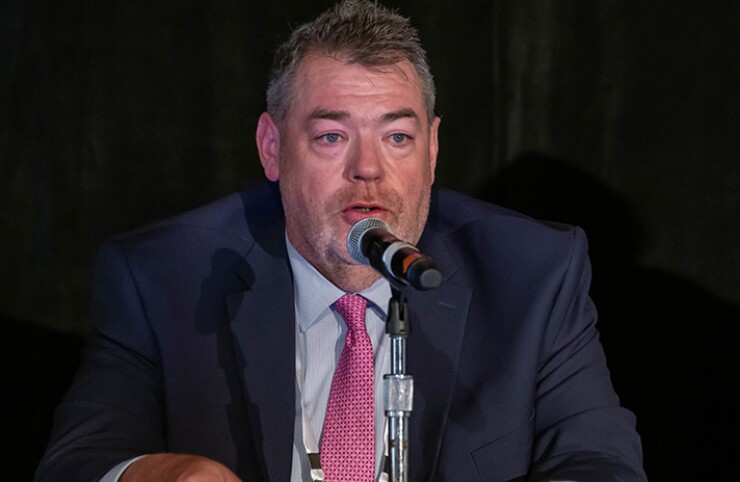The Government Finance Officers Association's debt committee Saturday recommended repealing a decades-old policy position against taxable debt and revamping a swath of best practices ranging from issuing variable-rate debt to hiring underwriters as part of a wider updating of its best practices and policy statements.
Meanwhile, the GFOA’s next debt-focused best practice is likely to focus on designated green bonds, debt committee members said Saturday.
At its meeting Saturday ahead of the GFOA’s 116th conference in Austin, Texas, the debt committee spent hours recommending updates to the association’s best practices, which guide tens of thousands of local and state governments across the country. It’s the first time in 10 years that the committee has undertaken a comprehensive review of all its best practices, which the association’s website says “aim to promote and facilitate positive change or recognize excellence.”

The recommendations will be sent to the executive board, which will vote on the measures in September. Changes to policy statements need to be voted on by the entire membership, which won’t happen until the 2023 annual conference at the soonest.
With all eyes on ESG, the association's upcoming best practice recommendation will likely focus on designated ESG bonds, said committee member David Erdman, Wisconsin’s capital finance manager.
“I think we’re pretty close to doing a best practice on designated bonds,” Erdman said. “The market is starting to hear more, as a result of MRSB discussions, about what people are looking for with designated bonds,” he said. “There’s been no consistency out there for investors, but now we are starting to see that a little.”
On the policy side, the GFOA’s decades-old position that the association “does not support the taxable bond option” dates all the way back to 1977, where it was written in response to a specific congressional situation, members said.
“That was in response to a very specific situation almost 50 years ago,” said debt committee chair Tim Ewell, chief assistant county administrator of Contra Costa County, California.
The position is “clearly at odds with our position now,” Ewell said.
Taxable bonds have become a growing part of the municipal market in recent years amid low interest rates and the 2017 Tax Cuts and Jobs Act ban on tax-exempt advance refundings. In 2020, taxable debt
Because the full membership needs to vote on policy statements, the committee recommended that the GFOA review the position ahead of the next annual conference, and “mute” the policy in the meantime.
A best practice that warns issuers about floating variable-rate debt may be softened to reflect both the potential usefulness of short-term variable rate notes and shifting market conditions, members said.
After years of low interest rates rendered variable-rate bonds uncommon, rates are back on the rise, Erdman noted. “As interest rates go up, you’re going to see more issuers consider variable-rate debt,” he said, noting that Wisconsin is floating $130 million of variable rate notes this week.
Also on the variable-rate debt practice, the debt committee recommended updating language to reflect that the most common interest rate index, the London Interbank Offered Rate, is being phased out. The GFOA will not recommend a new index in its updated best practices.
On the market side, current best practice recommends issuers use an RFP to select an underwriter. The committee suggested broadening the recommendation to include hiring a previously retained underwriter who may already be familiar with the issuer’s “story" without a new RFP.
Through all the best practices, the committee suggested weaving language highlighting diversity, equity and inclusion as well as ESG principles.
After the meeting, Ewell thanked the committee for its work, noting that it was the first in-person annual conference since the pandemic. The debt committee has, he said, embarked on such tasks as a suite of ESG best practices, an ESG white paper, voluntary disclosure and a “wholesale review of the vast majority of our best practices,” he said. “It proves once again that this is the committee that rolls up its sleeves and works on behalf of our membership.”





